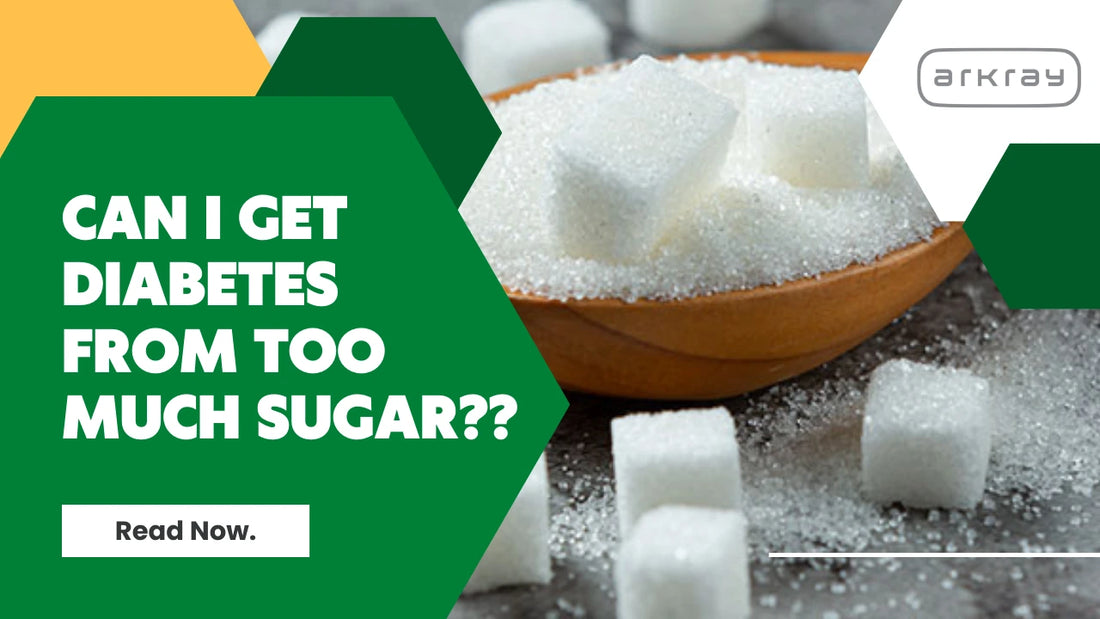
Can I get diabetes from too much Sugar?
Eating too much sugar is not linked to type 1 diabetes, nor does it cause type 2 diabetes directly - though it can have indirect effects, like weight gain, that make it more likely for type 2 diabetes to develop. Glucose, sugar that gets into your bloodstream after you eat or drink, also plays a role in diabetes risk. In fact, the human body uses glucose, a simple form of sugar, as one of its main sources of fuel.
A 2017 meta-analysis, based on nine reports from 15 cohort studies including 251,261 participants, found that there was no significant effect of total sugar intake on risk for type 2 diabetes.7 Those who consumed more sugar did indeed have a 9 percent lower risk for diabetes than those who consumed less sugar, though the difference was not statistically significant (meaning that it may be an occasional outcome).
Carbohydrates are sugars and starches in foods, which our bodies break down into simpler sugars for fuel. When you eat carbohydrates -- which includes sugary foods and starches -- they are digested into glucose (also called sugar). Since sugar levels are elevated in diabetes, eating sugary foods is thought to trigger diabetes.
A 2015 meta-analysis summarizing results from 17 cohorts concluded that, after adjustment for body mass, daily consumption of a 250-ml sugar-sweetened drink was associated with an approximately 13 percent increased risk of diabetes. People in a lifestyle intervention group reduced their risk of diabetes over three years by 58 percent, while losing only 7 percent of their body weight. Just a five to 10 percent weight loss can have big effects on your risk for diabetes, as well as on your general health.
If you are overweight, losing even 7 percent of your bodyweight--for example, 14 pounds (6.4 kg) if you weigh 200 pounds (90.7 kg)--can lower your diabetes risk. Women who have developed gestational diabetes may be able to lower their diabetes risk by managing body weight, not adding too much weight while pregnant, and increasing exercise prior to the planned pregnancy. Many people must remain on medication for diabetes throughout their lives, but some may be able to discontinue medication through lifestyle changes such as losing weight and increasing physical activity.
That is, for people who have either type 1 or type 2, making healthier food choices and exercising regularly may greatly help control their diabetes and reduce their need for insulin or other diabetes medications. Most diabetes medications work by trying to keep your blood glucose levels in certain ranges. Over time, your pancreas might make less insulin, and medications that do not include insulin might not be enough to keep your blood glucose levels normal.
Even though the pancreas attempts to boost its production of insulin, eventually, it cannot regulate glucose levels -- leading to spikes in blood sugar. A person without diabetes should not have sugar spikes after drinking a soda or eating a piece of cake. A higher sugar intake may also cause you to consume more calories than your body needs, which may contribute to weight gain or obesity.
While eating sugar on its own does not lead to insulin resistance, eating foods that contain sugar and fat may lead to weight gain, which decreases your bodys insulin sensitivity. Sources of processed or added sugar, including condiments, honey, and particularly sugary beverages, are only some potential culprits of weight gain, and it is when consumed in excess that they may increase diabetes risk.
